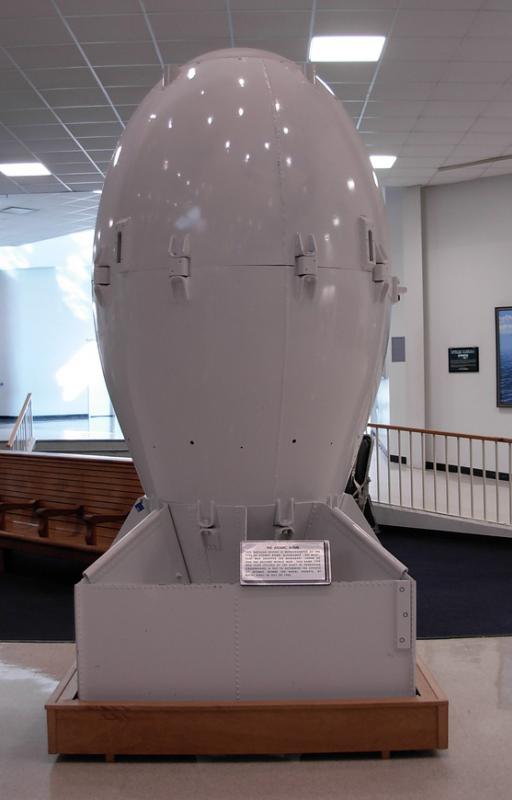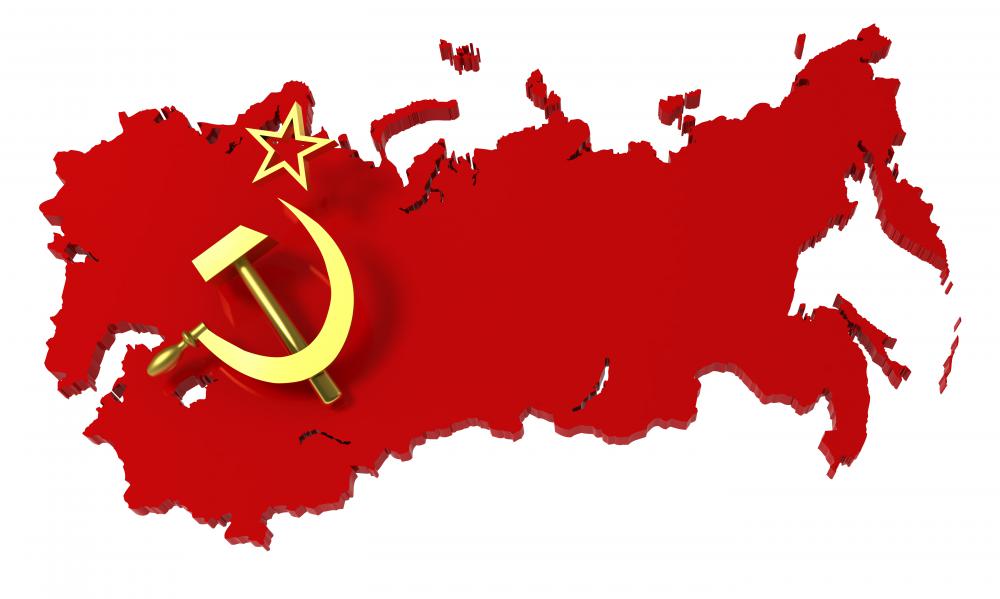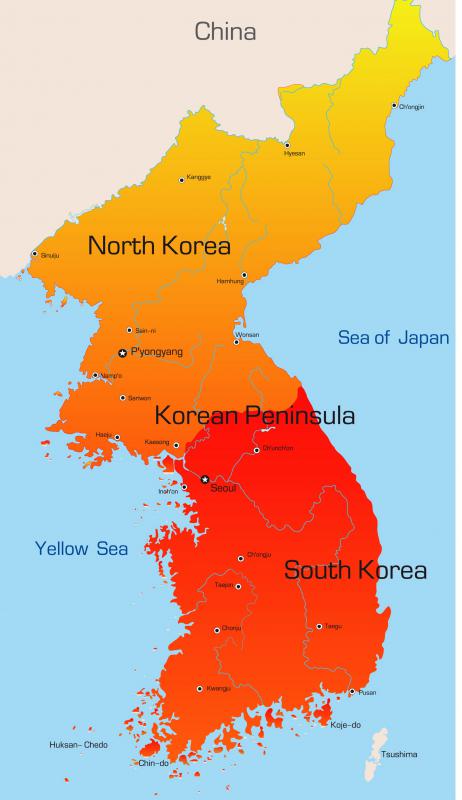At WiseGEEK, we're committed to delivering accurate, trustworthy information. Our expert-authored content is rigorously fact-checked and sourced from credible authorities. Discover how we uphold the highest standards in providing you with reliable knowledge.
What is Nuclear Proliferation?
Nuclear proliferation is the increasing worldwide availability of nuclear weapons, nuclear knowledge, and nuclear materials such as enriched uranium or plutonium. It has long been a stated concern of politicians and nuclear arms control advocates, though the actual effort devoted to such goals has varied. Nuclear weapons technology was first developed by the Manhattan Project of the United States in July 1945.
Watchdog groups seek to minimize the accessibility of nuclear weapons, materials, and knowledge in an effort to lower the probability of nuclear war, and/or take steps towards the relinquishment of nuclear weapons entirely. Most calculations have shown that even a limited nuclear war could kill millions of people and disrupt agriculture worldwide, while an all-out nuclear war could kill hundreds of millions and end civilization as we know it.

Since nuclear weapons were developed in 1945, about a dozen countries have pursued the technology. After the United States' atomic bomb Trinity, the former Soviet Union achieved success in 1949 (RDS-1), followed by the United Kingdom in 1952 (Hurricane), France in 1960 (Gerboise Bleue), China in 1964 (596), India in 1974 (Smiling Buddha), Pakistan in 1998 (Chagai-I), and North Korea in 2006 (Kim-Il Sung's Return). Israel likely developed nuclear weapons in 1979 (possibly related to the Vela Incident), and the country is widely thought to possess nuclear weapons, but it is undeclared. Through the breakup of the Soviet Union in 1991, several smaller states (Ukraine, Belarus and Kazakhstan) acquired nuclear materials, weapons, and knowledge.

Thought on the prevention of nuclear proliferation is heavily dictated and influenced by the Nuclear Non-Proliferation Treaty, which was opened for signature on 1 July 1968 and has since been signed by 189 countries, including the five "official" nuclear weapons states: the US, UK, France, Russia, and China. The few countries that have not signed the treaty include Israel, Pakistan, India, and Myanmar. Many countries and observers have argued that the treaty is ineffective, partially because it is biased towards certain countries in that some are allowed nuclear weapons and some are not. Also at issue is the claim of NATO countries, especially the United States, that the treaty would be suspended in the case of "general war," which seems to render the treaty moot with regards to one of the major issues it was created to solve.

There is a major disagreement in the international community regarding the way that nuclear nonproliferation efforts should move forward. The United States emphasizes the prevention of nuclear weapons being acquired by so-called "rogue states" like North Korea and Iran, whereas most other countries emphasize the need for the existing nuclear powers to disarm and lower their stockpiles. In light of continuing tensions between Russia and NATO, this seems unlikely to occur in the foreseeable future.
AS FEATURED ON:
AS FEATURED ON:


















Discussion Comments
Haarp seems awesome.
I know that Dr. Andrei Shoumikhin is an expert in the Russian Arms Proliferation. He's going to be on a radio blog show and will be talking about a bunch of different topics like electromagnetic pulses and other super important things that I feel like we civilians need to prepare for.
What about Israel, who not only has nuclear facilities but also make nuclear weapons, hydrogen bombs and biological weapons? They deny all this and keep out the international community. We say nothing to them. What about our our weapons, including HAARP? All countries should be treated the same.
Nuclear non-proliferation and disarmament will not likely occur until the United Nations imposes some consequence for development of nuclear weapons by Pakistan, Israel, and North Korea.
The lack of response or outrage toward the acquisition of nuclear weapons by these nations creates a double standard. Many Middle Eastern nations believe it is unfair that Israel is the only nuclear power in the Middle East.
India developed nuclear weapons outside of the Nuclear Non-proliferation Treaty, but has since begun to lower stockpiles. India is also the only nuclear power that has a “non-first” clause, meaning that they will only use nuclear weapons if attacked with nuclear weapons. India has also agreed to allow inspectors into the country.
If these countries do not agree to allow the International Atomic Energy Agency to inspect their nuclear capabilities and sign on to some sort of non-proliferation agreement it is likely that countries will secede from the non-proliferation treaty.
President Barack Obama and Russian President Dmitry Medvedev recently signed an extension of the Strategic Arms Reduction Treaty (START) that expired December 2009. The two leaders have each pledged to reduce their operational stockpile of strategic warheads to 1,550 apiece.
The reduction would take place over a period of seven years, with complete dismantlement taking longer. The current total of operational strategic warheads stands at 2,200 apiece.
In addition to reducing the total number of operational warheads, the two leaders agreed to reduce the number of missile launching systems to 700 operational and an additional 100 on standby.
While it seems like a token exchange that does not affect the prospects for nuclear annihilation, the treaty is significant. Nuclear warheads are costly to decommission and the storage of waste is an issue. The treaty also shows that relations between the two countries are still improving, and that there is a consensus that non-proliferation is the way forward. Three thousand total warheads is also a significant reduction from the almost 20,000 accounted for after the cold war.
Post your comments